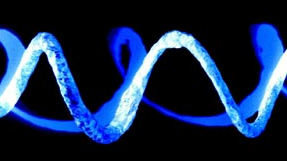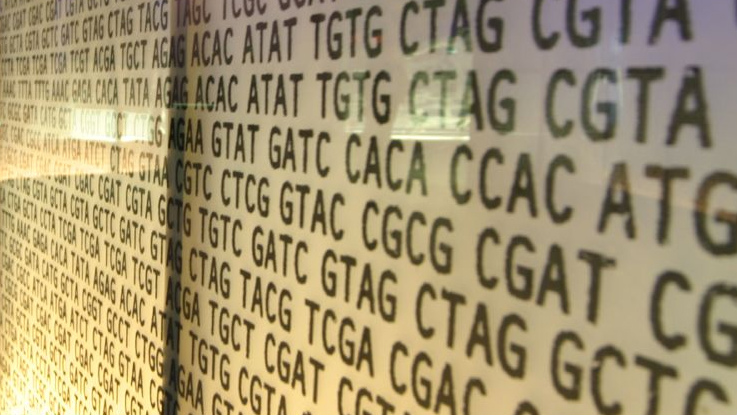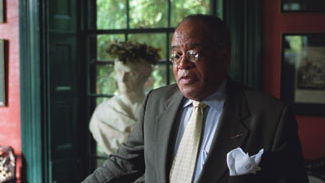bigthinkeditor

The quality of effective entrepreneurial leadership that I most admire combines a practical modesty with a frontiersman’s ability to step fearlessly into the unknown.
Navigating and coordinating all of today’s social networking tools at the office spells w-a-s-t-e. Unifying the functions across platforms into one software will boost productivity for business.
Climate change expert Bjorn Lomborg says carbon pricing is a “broken” scheme and the world must instead invest heavily in R & D to make green energy cheaper than fossil fuels.
Ever wish you had your own personal makeup artist? That dream could soon be a reality with a computer that scans your face and suggests the perfect personalized makeup combination.
The fact that foodies so often construct their pursuit of rarified taste to be an environmentally and socially responsible act only intensifies the ugly paradox at the core of the movement.
Why are new drugs always tested on laboratory mice, anyway? And when a drug does successfully cure a poor mouse, how does it find its way to human drug stores?
What if scientific investment sought to benefit people directly rather than secondarily through technological development? Welcome to the emerging world of social innovation.
Apple didn’t invent the tablet computer, but it didn’t invent the MP3 player or the cell phone either, says Shane Richmond. Now Apple markets its iPad 2 as a post-PC device.
Rare earth minerals crucial to the operation of laptops, cellphones and iPods are mined from conflict areas like the Congo where profits from resource extraction fund civil wars.
New companies are selling privacy protections to Internet users while others are hoping to cash in on the opposite: inviting users to sell their data to online retailers for cash.
Taking advantage of social networking software to increase collaboration and innovation in the workplace is the next big thing, says Tom Davenport, professor of management at Babson.
The Cancer Genome Atlas project, already several years underway, is transforming the way scientists think about and treat cancer.
Only 2% of the 3 billion DNA base pairs in the human genome actually code for proteins, but the rest of our non-coding genes are proving vital to understanding a host of diseases like autism and schizophrenia.
The asteroid discovery record of 19 objects in one night was set on January 29. The asteroid discovery record was accomplished using a powerful telescope on the Hawaiian island of Maui.
Columbia economics professor Jeffrey Sachs quotes Gandhi who famously said that there are enough resources on Earth for everybody’s need, but not enough for everybody’s greed.
A volunteer effort to map all the food stores in Brooklyn, N.Y., is an example of two rising trends: citizen mapping and increasing scrutiny of urban Americans’ access to healthy food.
Scientists are buying up tickets for privately-run trips to space. Space tourism teams like Virgin Atlantic offer relatively cheap ways for cosmologists to observe their subject of study.
“The age of plastic, disposability and consumerism was an artefact of overproduction in the oil industry. Higher prices and harder access will usher in a different age,” says Andrew Simms.
Three new technologies aim to tap unconventional energy sources—automobile motion and the temperature and saltiness of seawater—to produce vast new supplies of electricity.
“Demand for water in agriculture and energy production could spike in the coming decades while catastrophic floods and droughts strike more often,” reports The Independent.
A new printing technology is in development that promises to pack between 10 and 30 percent more energy into batteries for electric vehicles helping them to compete with conventional cars.
The world’s leading particle accelerator, the Large Hadron Collider, has yet to find any evidence of certain particles that physicists depend on to explain our subatomic world.
Italian inventor Andrea Rossi claims to have developed commercial-ready cold fusion technology that can produce large amounts of energy from dirt-cheap nickel and hydrogen.
The life of Reverend Peter J. Gomes, a self-described oddity, may appear to be somewhat of an enigma. Rev. Gomes, widely considered one of the country’s leading preachers, died Monday at 68. Gomes was a gay black Baptist preacher and a registered Republican. And yet, while these seeming contradictions–notably being Christian and gay–are irreconcilable to some, according to Rev. Gomes, his identity was “reconciled in me by a loving God.”
The ego is the part of us that loves power. It is the part that loves to be seen, recognized, praised, and adored. Facebook provides a powerful platform for this.
Technology will make collaboration your next competitive advantage, says Technology Review. But what are the tools that truly help you be more collaborative and productive?
Slate provides what it dubs the American consumer’s guide to the Arab democratization movement. Will you still support Arab freedom if gas prices soar?
The Wall Street Journal says European taxpayers deserve clarity on just who benefited from the ‘Irish bailout.’ “It was the creditors of Ireland’s banks.”
Struggling to solve a creative problem? Pretend you’re doing it for someone else. We’re more capable of mental novelty when thinking on behalf of strangers than for ourselves.
Darwin himself struggled to explain the evolution of so intricate an organ as the human eye. But scientists have discovered a worm’s eye that may make the job easier.


